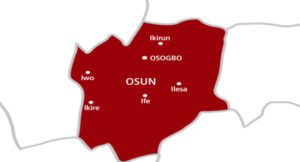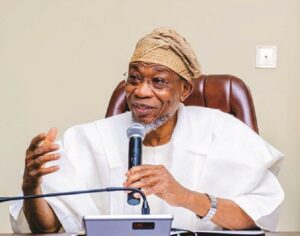
Strengthening NBA-SBL for enhanced performance
Adewale Kupoluyi
The Nigerian Bar Association Section on Business Law (NBA-SBL) has elected new set of officers to steer its affairs for the next two years. The coming on board of seasoned lawyers is an opportunity to consolidate on past achievements and develop fresh strategies that would made the section a force to be reckoned with. This assurance was given in the acceptance speech of the new chairman of NBA-SBL, at its Annual General Meeting (AGM), recently held in Lagos, which was in all modesty concise, loaded, purposeful, and an attempt at redefining business law practice in Nigeria. The Chairman, Dr. Adeoye Adefulu gave an insight into his blueprint by expressing gratitude to those that nominated him in the first instance into the membership of the SBL as well as those that put forward his name to serve as chairman.
He extended his appreciation to past Chairmen, council members, committee chairs and executive officers, who he said, largely contributed to making the SBL one of the leading membership associations in the Nigerian business community. Dr. Adefulu informed that since it was founded in 2004, the section had been known for its culture of excellence showcased at the annual conference and through the various committees year-long events and that in the times past, SBL had continued to widen access to continuing legal education and equipping business lawyers with necessary tools. He disclosed that through advocacy efforts, the section had improved the business environment, saying, “We owe our thanks to past leaders, who through their vision, dedication and grit have brought us this far. Our founding chair – Mr. George Etomi, Mrs. Mfon Usoro, Mr. Gbenga Oyebode, Mr. Asue Ighodalo, Mr. Olumide Akpata, Mr. Seni Adio, SAN and now, Mr. Ayuli Jemide. These are all creative and valiant leaders at the bar and in the business world.”
The new Chairman admitted that the SBL had achieved a lot, but that there is still much to do. “It is not a time for self-congratulations, but a time for self-reflection. The business and economic environment within which we operate has changed significantly since the founding of the SBL. Indeed, we can argue that the business world has changed significantly over the past two years since the beginning of the Coronavirus disease (COVID-19) pandemic. Our demography has also changed with Boomers, Gen X, Millennials, Gen Zs and their different cultures practicing law together, which sometimes could be in the same office. Whilst the objectives of the SBL remain broadly the same, we must adapt our tools to reflect the new environment, demography and culture.” To ensure that SBL is alive to its responsibilities and as a membership organisation, it must continually ask questions on what members need, he added.
The chair drew attention to the fact that “We are all witnesses to the challenging times faced by businesses; small and large. Inflation, devaluation and multiple taxation, just to name three. As service providers, we thrive when our clients thrive. As the nation goes through a political transition, we must play a central role in shaping the new economic and business agenda. Therefore, we need to re-assess and strengthen our tools for advocacy and communication.” He revealed that his administration’s tripod is hinged on ‘The Three Factor Focus,’ being the thrust of the 2022-2024 council. He, therefore, expressed the officers’ commitments by way of a mathematical formula of 2 times I, divided by S.
“The first I; is for Impact; we want to positively impact the professional lives of our members. This will be measured by opportunities for professional development, through training, mentoring, networking, volunteering and providing access to necessary tools for delivering our services,” he said.
Towards realising these goals, Dr. Adefulu left a promissory note that he will work with third parties to deepen the service ecosystem made available for business lawyers to strengthen their craft on the premise that the section is committed to opening up these opportunities for them.
The second I; is for Influence, saying “We will work to deepen our influence over the business environment, measured by the quantity and quality of our private sector partnerships, our advocacy efforts with regulators, national and state assemblies and the executive. S is for Sustainability, as these activities will be girded by the principle of sustainability. We will carry them out in a way that protects the survival of the institution, from our finances, to governance, to developing and recording systems, which will survive the current leadership of the organisation.”
As the new council starts work immediately, the chair submitted that the first task will be to listen. “We want to hear your views on critical question that borders on how can we make the SBL work better for you?” True to his promise, the assessment survey had been administered by asking members to fill in their responses to the carefully-selected items. Dr. Adefulu added that a virtual suggestion box would be made available where at any time, members can give feedback on the section’s activities. “Let me encourage you to volunteer. Volunteering is in the SBL DNA and is the tool by which it carries out its informal Leadership Apprenticeship Training. It is also a great opportunity to network and develop a variety of skills, useful in your practice and other aspects of life. We will need volunteers to carry out some of the responsibilities.”
He concluded his message by looking forward to working with the diverse, hardworking women and men that were elected into the new council, most of who he said, he had the privilege of working with in various capacities both at the SBL and professionally. The NBA-SBL’s new council has the chairman and 12 other members, who are seasoned commercial law practitioners from various legal backgrounds. Dr. Adefulu is a partner in the law firm of Odujinrin and Adefulu with many years of professional experience spanning the fields of petroleum law and policy; electricity law and policy; environmental law, corporate and project finance. Other SBL officers are Vice Chairman, Aisha Rimi; Secretary, Babasola Alokolaro; Assistant Secretary, Adeleke Alex-Adedipe; Treasurer, Ayoyinka Olajide-Awosedo; Financial Secretary, Oyeyemi Aderibigbe; immediate past Chairman, Ayuli Jemide; immediate past Secretary, Ozofu Ogiemudia; while Chinasa Unaegbunam, Stella Duru, Funmi Otsemobor, Perenami Momodu and Kehinde Daodu are elected members.
In a nutshell, the new chair has affirmed that the section, known for its culture of excellence, would continue to broaden access to continuing legal education and empower business lawyers with necessary skills, having admitted that even though, the section had achieved a lot, he believes that there is ample room for advancement by continually asking questions on members’ needs by playing a central role in shaping the new economic and business agenda through the re-assessment and strengthening of advocacy and communication channels. Not only that, the place of ‘The Three Factor Focus,’ as the thrust of the new council, would offer vistas of opportunities for business lawyers to air their views on critical questions on how to make the SBL work better without leaving out the volunteers, as business law practice continues to wax stronger in Nigeria.
Dr. Kupoluyi writes from the Federal University of Agriculture, Abeokuta (FUNAAB), Ogun State, @Adewale Kupoluyi



